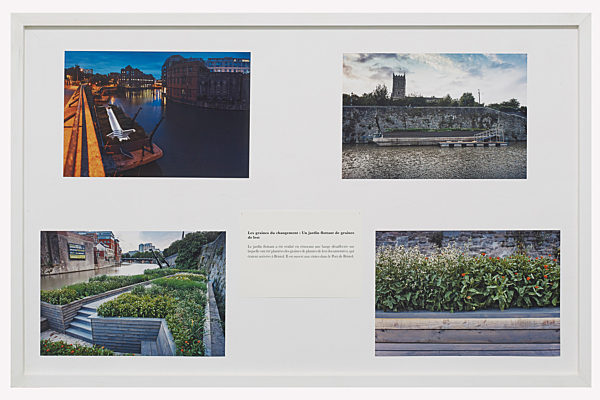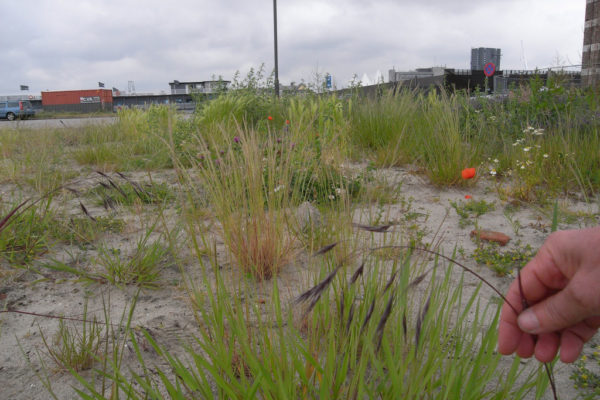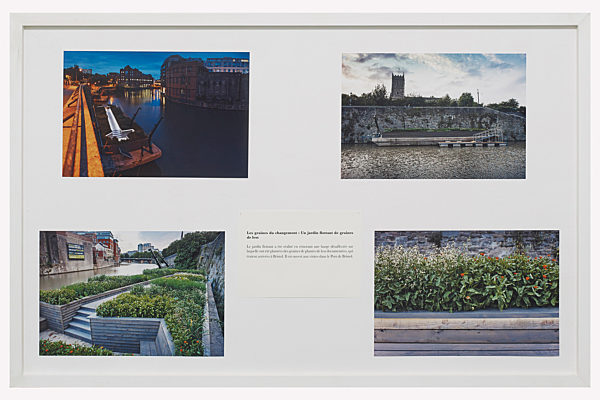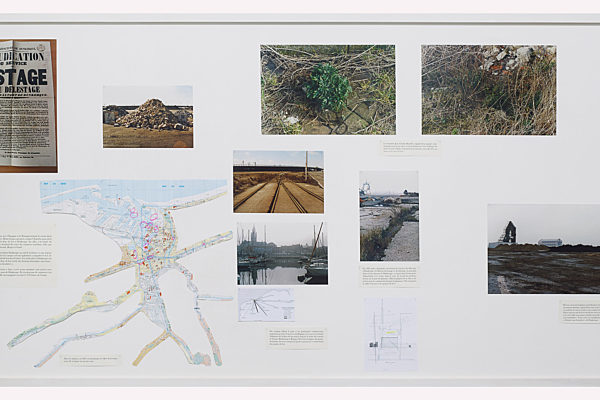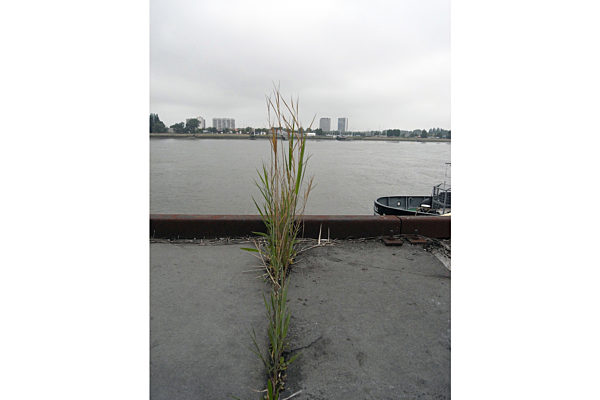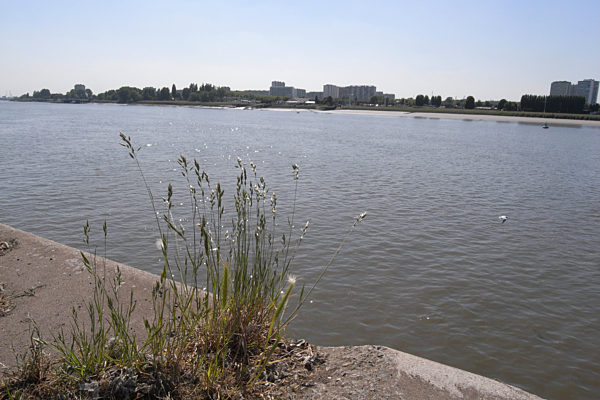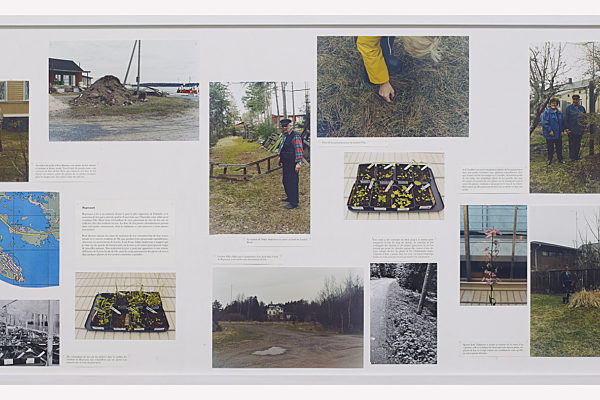Seeds of Change
Maria Thereza Alves
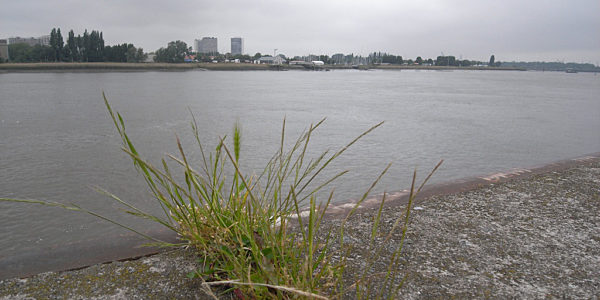
Earth, stones, sand, wood, bricks and whatever else was economically expedient was used as ballast to stabilize merchant sailing ships according to the weight of the cargo. Upon arrival in port, the ballast was unloaded, carrying with it seeds native to the area where the ballast had been picked up. Seeds of Change unearths historical ballast sites and ballast flora. It is an ongoing investigation of ballast flora in the port cities of Europe and has been developed for Marseille, Reposaari, Dunkirk, Exeter, Liverpool, Bristol, Antwerp and most recently New York.
Seeds contained in ballast may germinate and grow, potentially bearing witness to a far more complex narrative of world history than is usually presented by orthodox accounts. Although they have the potential to alter our notions of the identity of place as belonging to a defined bioregion, the historical importance of these seeds is rarely acknowledged. Seeds of Change is, therefore, designed to question those discourses that define the geographical and ‘natural’ history of place: At what moment do seeds become ‘native’? What are the socio-political histories of place that determine the framework of belonging?
The botanist, Dr. Heli Jutila, writes: “Although seeds seem to be dead, they are in fact alive and can remain vital in soil for decades, and even hundreds of years in a state of dormancy.” Some of these seeds have already germinated; others, given the right conditions, still retain the potential to germinate.
An integral part of Seeds of Change is the creation of Ballast Gardens; gardens planted with ballast flora. These have been made in Bristol and in various venues in New York.
In the context of Artefact 19: Parallel Crossings, a garden for a port of Antwerp iteration will be made in the Beguinage in Leuven in spring/summer 2019.
This new iteration of Seeds of Change and the Ballast Garden is a STUK-KU Leuven co-production.
It was developed in collaboration with Elisa Strinna, Anton Van Rompaey (KU Leuven afdeling Geografie), Filip Verloove (Plantentuin Meise).
Special thanks to Michel Rein Paris, Christina Seyfried, Frans Buelens, Bart Deputter (Koninklijk Museum voor Midden-Afrika), FelixArchief, Afd. Groenbeheer Stad Leuven.
1999-ongoing, installation & garden







